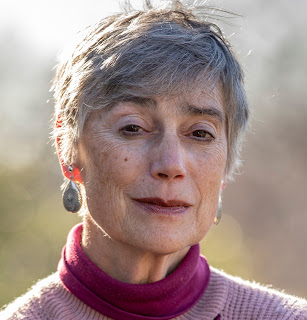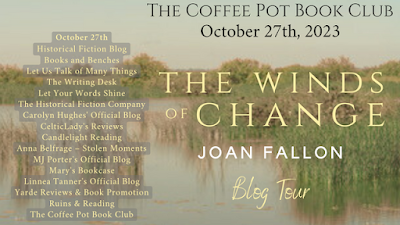The Moon That Fell from Heaven
By N.L. Holmes
Ehli-nikkalu, eldest daughter of the Hittite emperor, is married to a mere vassal of her father's. But despite her status, her foreignness and inability to produce an heir drive a wedge between her and the court that surrounds her. When her secretary is mysteriously murdered while carrying the emperor a message that would indict the loyalty of his vassal, Ehli-nikkalu adopts the dead man’s orphaned children out of a guilty sense of responsibility.
A young cousin she has never met becomes a pretender to the throne and mobilizes roving armies of the poor and dispossessed, which causes the priority of her loyalties to become even more suspect. However, Ehli-nikkalu discovers a terrible secret that could destabilize the present regime if the pretender ever learns of it.
With the help of a kindly scribe, her brave young ward, and an embittered former soldier trapped in debt and self-doubt, Ehli-nikkalu sets out to save the kingdom and prove herself to her father. And along the way, she learns something about love.
Publication Date: September 26th, 2023
Publisher: Red Adept Publishing
Page Length: 307
Genre: Historical fiction
Grab a copy HERE!
INTERVIEW
Writing Interview questions.
Why did you choose to write your book in this era?
I taught a course in which I had assigned research on the divorce trial of a queen of Ugarit (part of the backstory of this book) as an exercise. That got me interested in the interrelationship between Hatti and its vassal, the fabulous little kingdom of Ugarit in the waning generations of the Bronze Age. The very first book I wrote (The Queen’s Dog) was a fictionalized look at that divorce, and this one picked up seventeen years later when its effects have had time to fester.
Did you find researching this era particularly difficult? What was the hardest thing to find out, and did you come across anything particularly surprising?
Not a lot is known about this society in some ways. We only have tantalizing snippets left in the recovered archives that survived the collapse of the kingdom in the early 12th century. We have a good idea of the palace’s ground-floor plan, but not of the arrangement of upstairs rooms, so I had to exercise some plausible reconstruction there. The historical framework of Moon is a mashup of little bits of historical incidents that are hinted at in the archives, improbable as they sometimes seem. For example, the kidnapping of the queen may really have happened, although some scholars believe that’s a mistaken translation. One of the most interesting archaeological facts I discovered wasn’t used in this book but in Queen’s Dog—the amazing sewer system that drained the site.
Can you share something about the book that isn’t covered in the blurb?
One of the most interesting aspects of Ugarit was the degree of visibility/power exercised by women, despite a basically patriarchal social framework. For example, the influence of the king’s mother, which parallels that of the tawananna in the Hittite Empire – almost a second king. That encouraged me tell a story as lived out by women of several different ages and classes. I think they all show themselves to be strong characters, willing to stand up to men’s expectations.
If you had to describe your protagonist(s), in three words, what would those three words be and why?
Well, there are three protagonists, and so I’ll give them each a word! Ehli-nikkalu, the emperor’s daughter—genuine. She has defended her psyche by standing on her rank, but we quickly see how deeply human she is and ready to empathize. She can take humiliation and grow from it. She can take the risks of love. Amaya, the aristocratic orphan—courageous. She has stepped into the breach to care for her dying mother, to protect her siblings, and ultimately to save a life at the risk of her own. If she ever seems submissive, it’s because she has the courage to sacrifice herself. Ili-milku, the chief scribe, a poet—kindness. He can’t help getting involved in the lives of his subordinates because he genuinely cares about them. And he helps the queen not for any political consideration but because she’s a human being in distress.
What was the most challenging part about writing your book?
Moon first appeared as an experiment in the Kindle Vella format—as an online serial, composed of brief episodes. I didn’t have the luxury of writing the book in the usual way and then cutting it up afterwards, as I did with a subsequent one. Instead, I had to keep one jump ahead of the weekly episode’s appearance, forking them over as I finished them! And since I’m a person who follows the characters to discover the plot then goes back and smoothes out the bumps, this was very difficult.
Was there anything that you edited out of this book that would have drastically affected the story, should it be left in?
I actually based this book on a previous version that had sat in my drawer for a while, discarded because the characters had never gelled for me, hence I couldn’t find the plot. It had always seemed too episodic to me. But I don’t think I dumped any particular event, just integrated the old ones better. There was a scene with the king’s sister, but it really didn’t have any bearing on the plot.
What are you currently working on?
I’m working on a third book in one of my Egyptian series, the Hani’s Daughter Mysteries. The book is Wheel of Evil. Book two is ready to launch in January or February of ’24.
What would you tell an aspiring author who had some doubts about their writing abilities?
Get a good content editor and line editor. After they’ve polished things up, you can be confident that what you’re offering readers is a professional piece of work. And more important, understand what they’re telling you and make it your own. The next book will be so much better! It’s like a course in creative writing.
Personal Interview questions.
What do you like to do when you are not writing?
I hike, garden, weave, dance, play the violin, and used to drive a jog cart, but fear of injury has curbed my equestrian adventures. I cook and can a lot. And, of course, read. I don’t think I’ve ever been bored in my life.
What did you want to be when you grew up?
There was a moment when I wanted to be an ornithologist, but pretty early on, I turned to archaeology and stuck with that goal.
What’s for dinner tonight? What would you rather be eating?
Nettle pie, Greek style. The only thing I would want to add is a little feta—I didn’t have any.
What would be a perfect day?
No place to go and nothing particular to do—just hang out on the farm, read, write, enjoy my barnyard fowl. I’ve become a real admirer of geese.
What is the best part of your day?
The evening, after the cats and birds are in, the shutters are closed, there’s a fire in the fireplace, and some great music playing. My workday is finished. My husband and I are a really boring couple!
Either or!
Tea or coffee: coffee
Hot or cold: cold
Movie or book: book
Morning person or Night owl: morning person
City or country: country
Social Media or book: book
Paperback or ebook: paperback


















